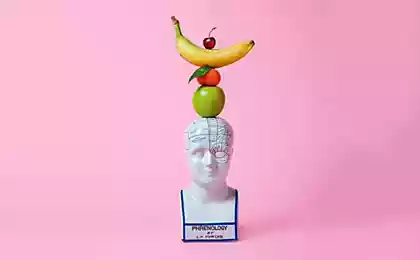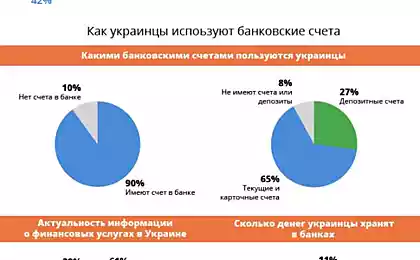588
$ 200 billion annually on incorrect predictions: Gerd Gigerenzer about risk literacy
Seventy two million two hundred fifty two thousand seven hundred eighty seven
© Carl Kleiner
Professor Gerd Gigerenzer, author of the book "Intuitive decisions: the intelligence of the subconscious" and Director of the Institute of educational research at the max Planck in Berlin, believes that the ability to correctly assess the risks should be taught in elementary school. Essay on how to learn to take responsibility and to live in a situation of uncertainty.
Literacy I mean the ability to read and write is a precondition for informed involvement in democracy is direct participation. But in our time just to be able to read and write is not enough. The dizzying evolution of technology has led to the fact that in the twenty-first century to possess the risk literacy needed to the same extent in the twentieth century it was necessary to master the skills of reading and writing. Risk literacy is the ability to assess probabilities.
Not owning it, people jeopardize their health and their money, allow you to inspire yourself unfounded, is often harmful to hopes and fears. But when the heads of States to discuss ways to confront contemporary threats to the concept of risk literacy out loud they appeal very rarely. Among the measures designed to reduce the probability of the next financial crisis was the tightening of legislation, unbundling of banks, the decline in bonuses to top managers, reducing the leverage ratio, and so on.
"I am confident that the current crisis should not oppose the new laws, the strengthening of bureaucracy and no cash infusion, but first and foremost, the spread among the citizens of risk literacy. For this they need skills in statistical thinking."But one important thought never sounded: it is necessary to help people to learn how to assess their own financial risks. For example, many borrowers from the category of "ninja" (NINJA — No Income, No Job, No Assets "no income, no job, no assets"), which the sub-Prime crisis almost left without the last shirt, I did not know that their mortgages — floating rate, not fixed.
Another problem, which will help to solve risk literacy is the sharp increase in prices in health care. With him usually propose to deal with the tax increases and limit the volume of medical services. Meanwhile, due to the spread among patients health literacy can be for less than it is now, the money to get better medicine. For example, few of us parents know that in the country every year, millions of children are prescribed unnecessary studies by computed tomography and that during CT examination of the entire human body receives a dose of radiation a thousand times greater than mammography, it provides around 29,000 additional cases of cancer annually.
I'm sure that the current crises we must not oppose the new laws, the strengthening of bureaucracy and no cash infusion, but first and foremost, the spread among the citizens of risk literacy. For this they need skills in statistical thinking.
In simple terms, statistical thinking is what allows a person to understand and calculate probability and risk. Meanwhile, 76% of American adults and 54% of Germans do not know how to Express the percentage probability of 1:1000 (it will be 0.1%). In schools, children are taught the mathematics of certainty: geometry and trigonometry, with little or not time with the mathematics of uncertainty. If it is still it comes, then it comes down to sad from the point of view of students puzzles with coins and dice. But statistical thinking can be served as a means of solving real problems, like the calculation of risks associated with the use of alcohol or riding assessment of the probability of getting AIDS or getting pregnant. Of the whole of mathematics statistical reasoning is most relevant to the lives of teenagers.
Statistical thinking is not taught even to students of law and medical faculties, although their future profession, by their nature, are inextricably linked with the calculation of probabilities. American judges and lawyers, without understanding the statistical side of genetic fingerprinting, is easy to come across on tricks of prosecutors; their British counterparts do to incorrect conclusions about the probability of occurrence of sudden infant death. Many doctors around the world mistakenly estimate the probability that a patient with positive screening test results actually have cancer, and are not able to draw the right conclusions from these studies are published in medical journals. Risky illiterate experts do not solve problems but instead create them.
"Every autumn dear financial bookmakers predict the behavior of the Dow Jones and the dollar for the coming year, although so far all their predictions were justified a little better than if it were done at random. Annually we give $ 200 billion industry predict that, as a rule, the projections wrong."Unlike basic literacy, risk literacy requires emotional reconfigure — he has to abandon the comfort of infantilism and visible clarity, learn to take responsibility and to live in a situation of uncertainty. You have to find the courage to know. The majority of this is still very far away. Studies show that the majority of patients like to believe in the omniscience of his doctor — after a reception at which they consider themselves to be fully aware of their own health and don't have the courage to ask for a second opinion to another specialist.
In a similar manner even after the banking crisis, many customers still blindly trust your financial advisors and risk all your money on the outcome of the consultation, which took them less time than watching a football match. In spite of everything many believe in the ability of others to discern the future and to pay these sellers of fate for the illusory certainty. Every autumn dear financial bookmakers predict the behavior of the Dow Jones and the dollar for the coming year, although so far all their predictions were justified a little better than if it were done at random. Annually we give $ 200 billion industry predict that, as a rule, the projections wrong.
Educators and policymakers must understand that risk literacy is a vital thing in the new century. Instead people continue to do what you think is right experts, they should be encouraged to make independent informed decisions and provide the necessary knowledge. Risk literacy should be taught in primary school. Let us have the courage to know: risk and responsibility necessary to use and not to avoid them. published
Source: theoryandpractice.ru
© Carl Kleiner
Professor Gerd Gigerenzer, author of the book "Intuitive decisions: the intelligence of the subconscious" and Director of the Institute of educational research at the max Planck in Berlin, believes that the ability to correctly assess the risks should be taught in elementary school. Essay on how to learn to take responsibility and to live in a situation of uncertainty.
Literacy I mean the ability to read and write is a precondition for informed involvement in democracy is direct participation. But in our time just to be able to read and write is not enough. The dizzying evolution of technology has led to the fact that in the twenty-first century to possess the risk literacy needed to the same extent in the twentieth century it was necessary to master the skills of reading and writing. Risk literacy is the ability to assess probabilities.
Not owning it, people jeopardize their health and their money, allow you to inspire yourself unfounded, is often harmful to hopes and fears. But when the heads of States to discuss ways to confront contemporary threats to the concept of risk literacy out loud they appeal very rarely. Among the measures designed to reduce the probability of the next financial crisis was the tightening of legislation, unbundling of banks, the decline in bonuses to top managers, reducing the leverage ratio, and so on.
"I am confident that the current crisis should not oppose the new laws, the strengthening of bureaucracy and no cash infusion, but first and foremost, the spread among the citizens of risk literacy. For this they need skills in statistical thinking."But one important thought never sounded: it is necessary to help people to learn how to assess their own financial risks. For example, many borrowers from the category of "ninja" (NINJA — No Income, No Job, No Assets "no income, no job, no assets"), which the sub-Prime crisis almost left without the last shirt, I did not know that their mortgages — floating rate, not fixed.
Another problem, which will help to solve risk literacy is the sharp increase in prices in health care. With him usually propose to deal with the tax increases and limit the volume of medical services. Meanwhile, due to the spread among patients health literacy can be for less than it is now, the money to get better medicine. For example, few of us parents know that in the country every year, millions of children are prescribed unnecessary studies by computed tomography and that during CT examination of the entire human body receives a dose of radiation a thousand times greater than mammography, it provides around 29,000 additional cases of cancer annually.
I'm sure that the current crises we must not oppose the new laws, the strengthening of bureaucracy and no cash infusion, but first and foremost, the spread among the citizens of risk literacy. For this they need skills in statistical thinking.
In simple terms, statistical thinking is what allows a person to understand and calculate probability and risk. Meanwhile, 76% of American adults and 54% of Germans do not know how to Express the percentage probability of 1:1000 (it will be 0.1%). In schools, children are taught the mathematics of certainty: geometry and trigonometry, with little or not time with the mathematics of uncertainty. If it is still it comes, then it comes down to sad from the point of view of students puzzles with coins and dice. But statistical thinking can be served as a means of solving real problems, like the calculation of risks associated with the use of alcohol or riding assessment of the probability of getting AIDS or getting pregnant. Of the whole of mathematics statistical reasoning is most relevant to the lives of teenagers.
Statistical thinking is not taught even to students of law and medical faculties, although their future profession, by their nature, are inextricably linked with the calculation of probabilities. American judges and lawyers, without understanding the statistical side of genetic fingerprinting, is easy to come across on tricks of prosecutors; their British counterparts do to incorrect conclusions about the probability of occurrence of sudden infant death. Many doctors around the world mistakenly estimate the probability that a patient with positive screening test results actually have cancer, and are not able to draw the right conclusions from these studies are published in medical journals. Risky illiterate experts do not solve problems but instead create them.
"Every autumn dear financial bookmakers predict the behavior of the Dow Jones and the dollar for the coming year, although so far all their predictions were justified a little better than if it were done at random. Annually we give $ 200 billion industry predict that, as a rule, the projections wrong."Unlike basic literacy, risk literacy requires emotional reconfigure — he has to abandon the comfort of infantilism and visible clarity, learn to take responsibility and to live in a situation of uncertainty. You have to find the courage to know. The majority of this is still very far away. Studies show that the majority of patients like to believe in the omniscience of his doctor — after a reception at which they consider themselves to be fully aware of their own health and don't have the courage to ask for a second opinion to another specialist.
In a similar manner even after the banking crisis, many customers still blindly trust your financial advisors and risk all your money on the outcome of the consultation, which took them less time than watching a football match. In spite of everything many believe in the ability of others to discern the future and to pay these sellers of fate for the illusory certainty. Every autumn dear financial bookmakers predict the behavior of the Dow Jones and the dollar for the coming year, although so far all their predictions were justified a little better than if it were done at random. Annually we give $ 200 billion industry predict that, as a rule, the projections wrong.
Educators and policymakers must understand that risk literacy is a vital thing in the new century. Instead people continue to do what you think is right experts, they should be encouraged to make independent informed decisions and provide the necessary knowledge. Risk literacy should be taught in primary school. Let us have the courage to know: risk and responsibility necessary to use and not to avoid them. published
Source: theoryandpractice.ru
Family values – do they make sense
Zuckerberg lifts veil of secrecy over Facebook's Oculus Rift integration























